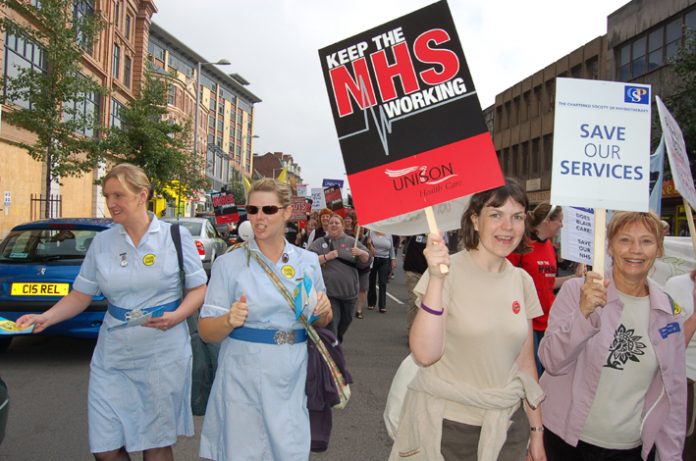Official figures revealed yesterday that there were one million more visits to Accident and Emergency departments in 2005-2006 as the government prepares to ‘reconfigure’ 60 NHS hospital trusts, closing down A&Es and maternity units.
Statistics from the Department of Health (DoH) show there were 18,759,104 A&E visits in 2005-06, up five per cent from 17,837,180 in 2004-05.
Consultants have expressed concerns that the the rise in A&E visits has been driven in part by the ‘safety-first’ approach of staff at NHS Direct, the telephone advice line, and by the handing over of GP out-of-hours care to agencies.
Consultants in Birmingham said one of the biggest increases is in the number of parents bringing in children with respiratory conditions — the most common problem seen by GPs in the out-of-hours period.
Dr Martin Shalley, the president of the British Association of Accident and Emergency Medicine, said: ‘The general public do not see the GP as the place to get emergency care out of hours any more.’
Emergency care specialist Dr John Heyworth warned that primary care services are collapsing in the community and there is no increase in resources to meet the growing needs of an ageing population.
Last month, Health Secretary Patricia Hewitt claimed plans to ‘reconfigure’ A&E departments ‘aren’t cuts.’
She said: ‘If we are to meet people’s rising expectations, the NHS needs to become not just a bit more efficient, but dramatically more efficient and effective.’
Meanwhile, another round of cuts may be necessary at Ipswich Hospital NHS Trust which already plans to close up to four operating theatres, cut 357 jobs and close down 70 beds in order to ‘save’ £48.8m.
Auditors called for managers to take urgent action, saying the Trust’s board predicted a deficit of £4.2m but the actual figure was £16.7m.
At the same time, Ipswich Hospital has admitted that a ‘hypervirulent’ infection, the superbug Clostridium difficile (C. difficile), had claimed the lives of at least 49 patients, and possibly as many as 78 people, in the space of nine months.
The increase in cases is partly due to dirty wards, but also to a shortage of beds.
A West Midlands NHS Trust has been severely criticised by government watchdog, the Audit Commission, after it revealed debts of £23m.
The Commission said the South Warwickshire General Hospital NHS Trust, which runs hospitals in Warwick and Stratford-upon-Avon, did not have strong financial recovery plans and faced considerable pressure.
In June, the trust was shown to have one of the worst NHS deficits in England.
Guis Miah, of accountants PricewaterhouseCoopers, which carried out the audit inspection, said the debt stood at £23m at 31 March.
Miah insisted that ‘there remains a significant risk the trust will not restore financial balance as planned and will report a further deficit unless further action is taken’.
